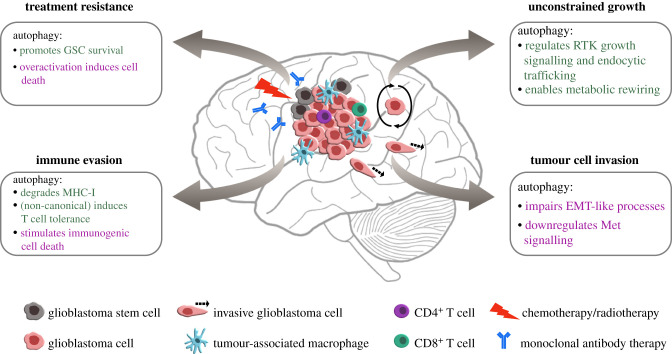Figure 2.
The potential relevance of autophagy in glioblastoma development and survival. Based on what is known from other solid tumour models and from findings in glioblastoma research, autophagy could be implicated in promoting (green text) or suppressing (purple text) various aspects of glioblastoma progression. Autophagy may support tumour growth by regulating receptor tyrosine kinase (RTK) signalling and trafficking, in addition to providing metabolites to fuel unconstrained proliferation. Autophagy may play a role in tumour cell invasion by regulating the epithelial-to-mesenchymal transition (EMT)-like process and limiting oncogenic Met signalling. Tumour cell immune evasion can be mediated by the degradation of major histocompatibility complex I (MHC-I) by autophagy, and immunosuppressive engulfment of dying tumour cells by non-canonical autophagy. By contrast, autophagy activation in dying tumour cells can stimulate immunity by releasing inflammatory signals. Upregulation of autophagy in response to treatment can support glioblastoma stem cell (GSC) survival while its overactivation potentially leads to tumour cell death.

